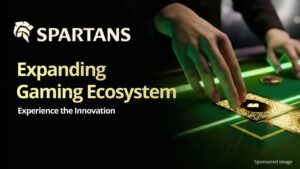The Evolution of Digital Play
Over the past few years, gaming has evolved from a casual pastime into one of the most innovative sectors in the digital economy. With the rise of blockchain technology, games are no longer just about entertainment — they’ve become ecosystems where players can truly own, trade, and monetize their in-game assets. The concept of “play-to-earn” (P2E) has changed how gamers interact with virtual worlds, ushering in an era where time spent playing can also create tangible value.
Projects like Chicken Road 2 exemplify this next-generation model, blending fun, competition, and blockchain functionality into one cohesive experience. By integrating NFTs (non-fungible tokens) and decentralized systems, such platforms allow players to gain real-world rewards, trade digital assets freely, and participate in the governance of their favorite games. This marks a radical shift from traditional gaming, where in-game items are controlled solely by the developer and have no external value.
How Blockchain Is Transforming the Gaming Industry
At its core, blockchain introduces a decentralized structure that benefits both players and developers. Every digital item, whether a weapon, avatar skin, or collectible, can exist as a verifiable token on a blockchain. This ensures authenticity, prevents duplication, and allows true ownership — meaning players can sell or transfer their assets independently.
Smart contracts play a pivotal role in managing in-game economies. They automatically handle transactions, enforce rules, and distribute rewards based on transparent code rather than centralized authority. This reduces the risk of manipulation while creating a more equitable experience for players. Furthermore, integrating cryptocurrencies as in-game currencies simplifies cross-border transactions and enables a global gaming economy without traditional payment barriers.
The decentralization aspect also empowers communities. Players can now participate in governance models through decentralized autonomous organizations (DAOs), voting on updates, policies, and the allocation of community funds. This level of involvement was nearly impossible in traditional gaming, where decisions were entirely developer-driven.
NFTs and the Rise of Digital Ownership
The introduction of NFTs has been one of the most groundbreaking developments in gaming. Unlike conventional digital assets that are locked within a game’s infrastructure, NFTs exist on open blockchains, allowing players to take their assets across multiple platforms or marketplaces. This interoperability has sparked the idea of a “metaverse” — an interconnected virtual universe where assets, identity, and reputation persist beyond individual games.
Moreover, NFT integration creates new economic opportunities for creators and players alike. Artists can design skins or digital collectibles that players can buy, sell, or showcase, while players can earn rewards by engaging with the ecosystem. This two-way economy supports both innovation and sustainability, ensuring that value creation extends beyond gameplay.
The Challenges Ahead
Despite its rapid growth, blockchain gaming still faces challenges. Scalability remains a key concern, as high transaction volumes can lead to network congestion and elevated gas fees. Additionally, the industry must continue addressing concerns about environmental impact, regulation, and user education.
Security is another critical issue. As with any digital economy, the risk of hacks and scams persists, emphasizing the need for improved infrastructure and user awareness. Projects that prioritize transparency, smart contract audits, and secure wallet integrations are more likely to gain long-term trust.
The Road Ahead for Web3 Gaming
The future of blockchain-based gaming looks incredibly promising. As technology matures, innovations such as Layer-2 scaling solutions, cross-chain compatibility, and AI-driven economies will make gameplay smoother and more interactive. Titles like Chicken Road 2 and other Web3 pioneers are paving the way toward decentralized entertainment ecosystems where creativity, ownership, and financial opportunity coexist.
In this new paradigm, players are no longer just participants — they’re stakeholders in an ever-evolving digital economy. The fusion of blockchain, NFTs, and gaming is setting the stage for a future where the lines between play, work, and investment continue to blur, opening limitless possibilities in the world of decentralized entertainment.
This article provides information about gambling platforms or casinos operating with cryptocurrencies. Crypto Economy is not affiliated with any of the mentioned services. We remind our readers that the use of crypto casinos involves inherent financial and legal risks, which may vary depending on the jurisdiction. This content is for informational purposes only and should not be interpreted as an investment or participation recommendation.








